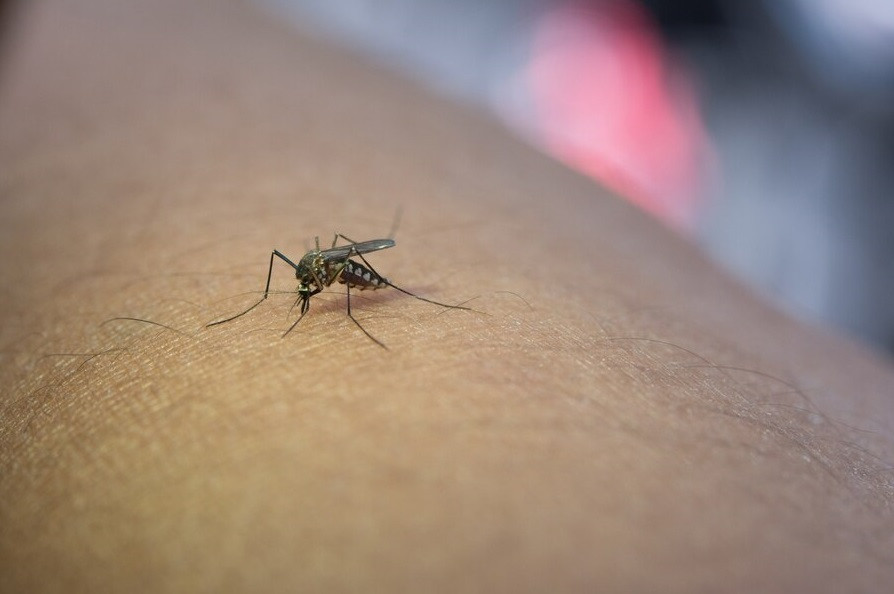Chikungunya adalah penyakit yang disebabkan oleh virus yang menyebar melalui gigitan nyamuk seperti Aedes aegypti dan Aedes albopictus. Walaupun disebarkan melalui gigitan nyamuk yang sama dengan demam dengue, chikungunya merupakan penyakit yang berbeda.
Gejala utama dari chikungunya adalah demam dan nyeri sendi yang parah. Penanganan dari penyakit ini difokuskan pada istirahat yang cukup, minum banyak cairan untuk mencegah dehidrasi dan penggunaan obat pereda nyeri seperti paracetamol. Bila sudah terkena chikungunya, akankah terkena kembali?
Asal Usul Chikungunya
Chikungunya disebabkan oleh virus Chikungunya (CHIKV). Virus ini pertama kali diidentifikasi di Republik Tanzania pada tahun 1952, kemudian menyebar ke negara-negara lain di Afrika dan Asia. Wabah pertama di perkotaan tercatat di Thailand pada tahun 1967 dan India pada tahun 1970-an. Ini menunjukkan kemampuan virus untuk menyebar dengan cepat dalam populasi nyamuk dan manusia.
Sejak tahun 2004, terjadi peningkatan signifikan dalam jumlah wabah CHIKV. Salah satu faktor penyebabnya adalah adaptasi virus yang memungkinkan virus lebih mudah disebarkan oleh nyamuk Aedes albopictus, yang memiliki penyebaran geografis yang lebih luas daripada Aedes aegypti.
Meskipun ada daerah-daerah di mana penularan CHIKV telah terhenti karena mayoritas penduduknya telah terinfeksi dan menjadi kebal, penularan tetap sering terjadi di daerah-daerah di mana sebagian besar populasi belum terpapar virus ini.
Baca Juga: Waspada Tanda dan Gejala Chikungunya
Gejala Utama Chikungunya
Gejala infeksi chikungunya biasanya muncul dalam rentang 3-7 hari setelah tergigit nyamuk yang terinfeksi. Adapun gejala umum yang dirasakan, di antaranya:
- Demam tinggi
- Nyeri sendi pada berbagai bagian tubuh, sering kali dirasakan pada sendi-sendi besar seperti lutut, pergelangan tangan dan pergelangan kaki
Gejala lain yang menyertai:
- Sakit kepala
- Nyeri otot
- Pembengkakan pada sendi-sendi tertentu
- Ruam kemerahan dan menonjol
- Kelelahan
- Nyeri di belakang mata
Baca Juga: Mirip Demam Berdarah, Ini Bahayanya Chikungunya
Reinfeksi pada Chikungunya, Mungkinkah Terjadi?
Sama-sama disebarkan melalui gigitan nyamuk, demam dengue dan chikungunya berbeda. Pada demam dengue orang yang pernah terkena virus dengue bisa terinfeksi lagi oleh serotipe virus dengue berbeda. Secara umum, ada empat serotipe utama virus dengue: DEN-1, DEN-2, DEN-3, dan DEN-4.
Infeksi awal dengan salah satu serotipe virus dengue memberikan kekebalan seumur hidup terhadap serotipe tersebut. Namun, kekebalan yang terbentuk setelah infeksi pertama tidak memberikan perlindungan yang lengkap terhadap serotipe-serotipe lainnya.
Bahkan, ketika seseorang yang sebelumnya telah terinfeksi oleh satu serotipe virus dengue kemudian terpapar oleh serotipe yang berbeda, mereka berisiko mengalami penyakit yang lebih parah yang dikenal sebagai demam berdarah (severe dengue atau dengue hemorrhagic fever).
Sedangkan pada chikungunya berbeda, menurut penelitian, orang yang pernah terinfeksi chikungunya dapat memiliki kekebalan seumur hidup terhadap virus Chikungunya. Setelah seseorang terinfeksi chikungunya dan sembuh, tubuh biasanya menghasilkan antibodi yang secara efektif dapat melindungi terhadap infeksi kembali dengan strain yang sama dari virus Chikungunya.
Antibodi yang dihasilkan oleh tubuh ini, terutama yang disebut antibodi penetral (neutralizing antibodies), memiliki peran penting dalam mencegah virus Chikungunya masuk dan berkembang biak dalam sel-sel tubuh. Mereka mengikat dan menetralkan virus, sehingga mencegah penyebaran dan menyebabkan penyakit.
Sebagai hasilnya, kebanyakan orang yang sembuh dari infeksi chikungunya memperoleh perlindungan yang kuat terhadap infeksi ulang dengan strain yang sama dari virus ini. Dalam banyak kasus, kekebalan ini dianggap seumur hidup.
Memiliki pertanyaan lebih lanjut tentang chikungunya? Anda bisa memanfaatkan layanan konsultasi kesehatan bersama dokter kami dengan mengunduh aplikasi Ai Care melalui App Store atau Play Store.
Mau tahu informasi seputar penyakit lainnya? Cek di sini, ya!
- dr Nadia Opmalina
Cleveland Clinic (2024). Chikungunya. Available from: https://my.clevelandclinic.org/health/diseases/25083-chikungunya
CDC (2024). Chikungunya Virus. Available from: https://www.cdc.gov/chikungunya/symptoms-diagnosis-treatment/index.html
WHO (2022). Chikungunya. Available from: https://www.cdc.gov/chikungunya/symptoms-diagnosis-treatment/index.html
Pan American Health Organization. Chikungunya. Available from: https://www.paho.org/en/topics/chikungunya
Willian M de Souza, Phd, et all (2023). Spatiotemporal dynamics and recurrence of chikungunya virus in Brazil: an epidemiological study. Available from: https://www.thelancet.com/journals/lanmic/article/PIIS2666-5247(23)00033-2/fulltext
Vanessa Ngan (2018). Chikungunya fever. Available from: https://dermnetnz.org/topics/chikungunya-fever
Lois Zoppi, BA (2021). What are Neutralizing Antibodies?. Available from: https://www.news-medical.net/health/What-are-Neutralizing-Antibodies.aspx












